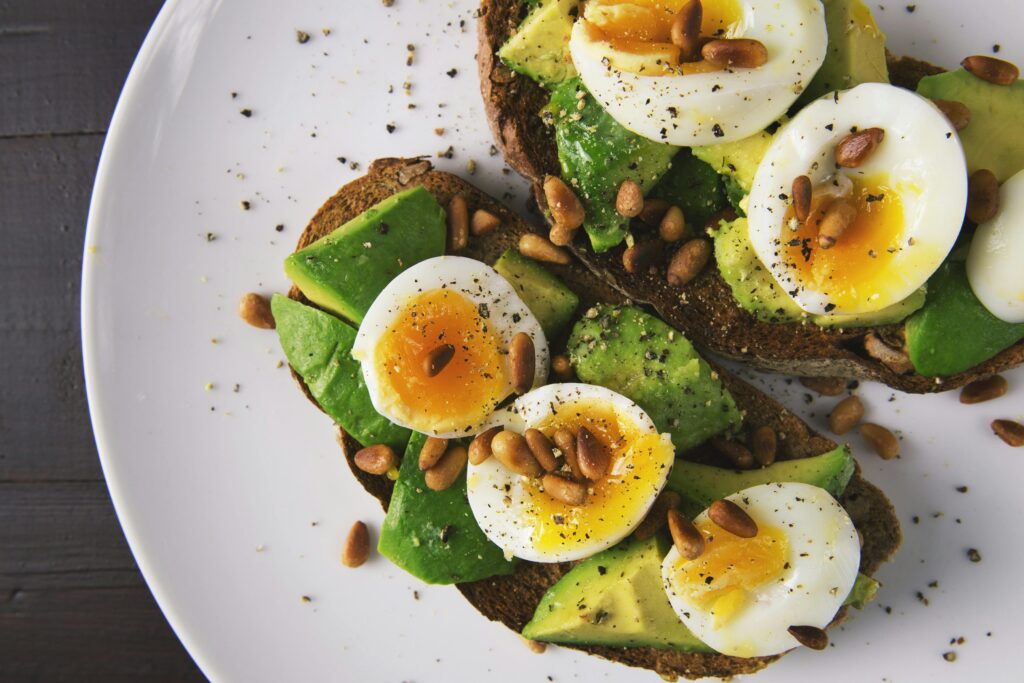Table of Contents
Nutrition is the cornerstone of a healthy lifestyle. It impacts everything from energy levels and immune function to mental clarity and overall well-being. While exercise is often highlighted as key to health, it is proper nutrition that truly fuels and sustains the body. In this guide, we’ll explore the principles of good nutrition, its importance, and actionable tips to optimize your diet for lifelong health.

Why Nutrition Matters
Every bite you eat is either feeding disease or fighting it. The food you consume provides the nutrients necessary for bodily functions like cell repair, energy production, and immune response. Here’s why proper nutrition is essential:
- Boosts Energy Levels: A balanced diet fuels your body with the calories and nutrients needed to stay active throughout the day.
- Supports Mental Health: Foods rich in omega-3 fatty acids, vitamins, and minerals can improve mood and cognitive function.
- Strengthens Immunity: Proper nutrition equips your immune system to fight off infections and illnesses.
- Reduces Risk of Chronic Diseases: A healthy diet can lower your risk of conditions like diabetes, heart disease, and obesity.
- Enhances Physical Performance: Athletes and fitness enthusiasts rely on nutrient-rich foods for strength, endurance, and recovery.
The Basics of Balanced Nutrition
To achieve optimal health, you need to focus on a balanced diet that incorporates all the major macronutrients and micronutrients.
1. Macronutrients: The Building Blocks of Your Diet
Carbohydrates
- Role: Carbs are the primary source of energy for your body.
- Sources: Whole grains, fruits, vegetables, legumes, and dairy.
- Tips: Choose complex carbs like quinoa and sweet potatoes over refined carbs like white bread.
Proteins
- Role: Proteins are essential for muscle repair, immune function, and enzyme production.
- Sources: Lean meats, fish, eggs, beans, lentils, tofu, and nuts.
- Tips: Aim for a mix of animal and plant-based protein sources.
Fats
- Role: Fats support brain health, hormone production, and absorption of fat-soluble vitamins (A, D, E, K).
- Sources: Avocados, olive oil, nuts, seeds, and fatty fish like salmon.
- Tips: Focus on healthy fats and limit trans fats and saturated fats.
2. Micronutrients: The Unsung Heroes
Vitamins
- Role: Vitamins are crucial for metabolism, immunity, and overall health.
- Sources: Fruits, vegetables, and fortified foods.
- Key Examples: Vitamin C (citrus fruits), Vitamin D (sunlight, fortified milk), and Vitamin A (carrots, sweet potatoes).
Minerals
- Role: Minerals like calcium, potassium, and magnesium support bone health, hydration, and nerve function.
- Sources: Dairy, leafy greens, bananas, and whole grains.
3. Water: The Essential Nutrient
Water is vital for every physiological process, from digestion to temperature regulation. Aim to drink at least 8-10 cups of water daily, and more if you exercise regularly.

How to Build a Healthy Meal
A balanced plate is the key to good nutrition. Here’s how to structure your meals:
- Divide Your Plate:
- 50% vegetables and fruits
- 25% whole grains or starchy foods
- 25% lean protein
- Add Healthy Fats: Include a small portion of healthy fats like olive oil or nuts.
- Stay Hydrated: Pair your meal with water or herbal tea instead of sugary drinks.
Common Nutrition Myths Debunked
There’s a lot of misinformation about nutrition. Let’s set the record straight:
Myth 1: Carbs Are Bad for You
Carbohydrates are essential for energy. The key is to choose whole, unprocessed carbs like oats and brown rice over refined ones.
Myth 2: Fats Make You Fat
Healthy fats are vital for your body. Weight gain occurs from overeating calories, not just fat.
Myth 3: Skipping Meals Helps with Weight Loss
Skipping meals can lead to overeating later. Instead, focus on balanced, portion-controlled meals.
Myth 4: Supplements Can Replace Food
Supplements are helpful for filling gaps in your diet but cannot replace the complexity of nutrients found in whole foods.
Special Diets: Which One Is Right for You?
With so many diets out there, it can be overwhelming to choose one. Here’s a breakdown of popular options:
1. Mediterranean Diet
- Focus: Whole foods, healthy fats, lean protein, and lots of fruits and vegetables.
- Benefits: Promotes heart health and reduces inflammation.
2. Keto Diet
- Focus: High fat, moderate protein, and very low carbs.
- Benefits: Effective for weight loss and improving insulin sensitivity.
3. Plant-Based Diet
- Focus: Emphasizes plant-based foods while minimizing or eliminating animal products.
- Benefits: Supports heart health, weight management, and sustainability.
4. Intermittent Fasting
- Focus: Alternating periods of eating and fasting.
- Benefits: Helps with weight loss and metabolic health.
Note: Always consult a healthcare professional before starting a new diet.
Tips for Healthy Eating on a Busy Schedule
Life can get hectic, but healthy eating doesn’t have to take a backseat. Here are some time-saving tips:
- Meal Prep: Spend a few hours each week preparing meals in advance.
- Snack Smart: Keep healthy snacks like nuts, fruit, or yogurt on hand.
- Use Quick Recipes: Opt for simple, nutritious meals like salads or stir-fries.
- Stay Organized: Plan your meals for the week and stick to your grocery list.

Nutrition for Specific Goals
Whether you’re aiming to lose weight, build muscle, or improve overall health, your nutrition should align with your goals.
1. For Weight Loss
- Create a calorie deficit by consuming fewer calories than you burn.
- Focus on high-protein, high-fiber foods to stay full longer.
- Limit added sugars and processed foods.
2. For Muscle Building
- Consume a high-protein diet (1.6-2.2g of protein per kilogram of body weight).
- Eat more calories than you burn to fuel muscle growth.
- Time your meals to include protein and carbs around your workouts.
3. For Overall Health
- Prioritize nutrient-dense foods.
- Practice mindful eating by focusing on your hunger and fullness cues.
- Maintain a balanced intake of all food groups.
The Role of Nutrition in Mental Health
Nutrition isn’t just about physical health—it also plays a huge role in mental well-being. Here are some foods that support brain health:
- Omega-3 Fatty Acids: Found in salmon, walnuts, and flaxseeds, omega-3s improve brain function and reduce symptoms of depression.
- Antioxidants: Berries, dark chocolate, and leafy greens protect the brain from oxidative stress.
- Complex Carbs: Whole grains provide a steady source of energy to the brain, stabilizing mood.
Common Mistakes to Avoid
Avoid these pitfalls to stay on track with your nutrition:
- Skipping Breakfast: Missing breakfast can lead to overeating later in the day.
- Drinking Your Calories: Sugary beverages can add unnecessary calories without filling you up.
- Relying on Processed Foods: Processed foods are often high in sodium, sugar, and unhealthy fats.
- Neglecting Portion Control: Even healthy foods can lead to weight gain if eaten in excess.
How to Stay Consistent
Building healthy eating habits takes time. Here are strategies to stay consistent:
- Start Small: Make gradual changes to avoid feeling overwhelmed.
- Track Your Progress: Use a food diary or nutrition app to monitor your intake.
- Find Support: Join a community or enlist a friend to stay motivated.
- Practice Flexibility: Allow yourself occasional treats to prevent burnout.
Conclusion
Good nutrition is the foundation of a healthy and fulfilling life. By focusing on balanced meals, staying hydrated, and making mindful food choices, you can fuel your body and mind for optimal performance. Remember, it’s not about perfection—it’s about progress. Start small, stay consistent, and enjoy the journey to a healthier you.


